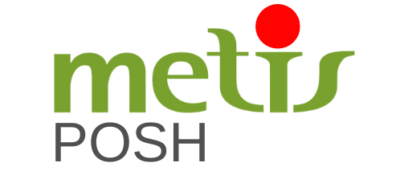The POSH Act marked a historic step toward securing women’s rights at work. But strong complementary policies and practices have enabled gender-safety frameworks to succeed by building a culture that is safer, more respectful, inclusive, and professional while reducing instances of harassment.
Key supporting policies include:
Office Transportation Policy
A formal office commute policy directly strengthens women’s workplace safety. It empowers more women to continue their careers by addressing:
- Safety protocols for company-provided transport
- Reporting procedures for safety concerns
- Emergency and exception guidelines
Diversity, Equity, and Inclusion (DEI)
A DEI policy ensures women are treated fairly and equitably at work. They typically focus on:
- Employee Resource Groups (ERGs) for professional growth and well-being
- Gender-balanced, bias-free hiring practices
- Leadership training for women
Inclusive and Respectful Communication
Many organisations set clear communication guidelines to ensure respectful and inclusive interactions among employees. This includes:
- Avoiding sexist language, casual remarks, or offensive jokes
- Email and chat etiquette across internal and external networks
Social Media & External Communication
As the lines blur between physical and virtual workplaces, companies have implemented policies to protect women from online harassment. These typically cover:
- Conduct on professional networks and forums
- Guardrails against online harassment
- Rules around sharing colleague information on social media
Protecting Whistleblowers
The Whistleblower Policy supports bystander intervention and safe reporting. It ensures:
- An independent committee is set up to handle complaints
- Anonymous reporting channels
- Protection against retaliation
Workplace Dress Code
A professional dress code policy ensures that attire at the workplace is respectful and appropriate. It governs:
- Dress code for office and factory settings
- Cultural sensitivity across diverse workforces
Conduct at Informal Office Gatherings
The Code of Conduct often extends to informal events like offsites and parties to maintain professional standards by:
- Setting expectations for respectful behaviour and consequences of misconduct
- Encouraging bystander intervention
Workplace Relationships
The Code of Conduct may set down rules for office relationships to avoid conflicts of interest, favouritism, or harassment. These ensure:
- Disclosure of a relationship between employees under the same reporting manager
- Rules for supervisor-subordinate relationships
- Protection from retaliation if relationships end
Third-Party Engagement Policy
Vendors, contractors, and consultants are part of the extended workplace. Ensuring they’re aware of POSH norms helps maintain a consistent culture of safety and respect It broadly covers:
- POSH sessions during vendor onboarding
- Including POSH compliance clauses in contracts
- Clear reporting channels for misconduct
These policies work together with the anti-sexual harassment policy to create a work environment where women can thrive. At Metis, we partner with organisations to align these supporting policies with their POSH framework, ensuring that compliance leads to lasting cultural change.

